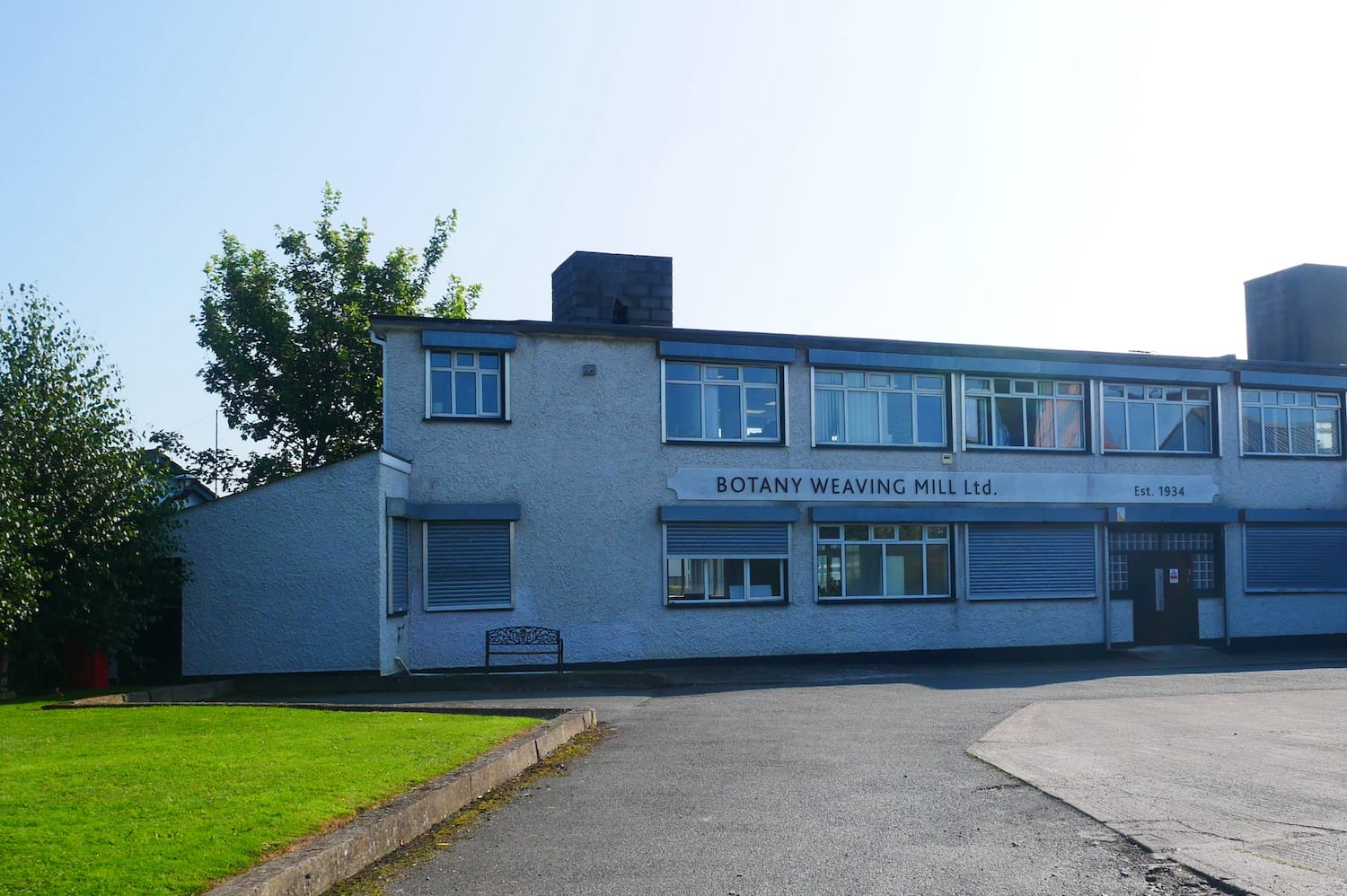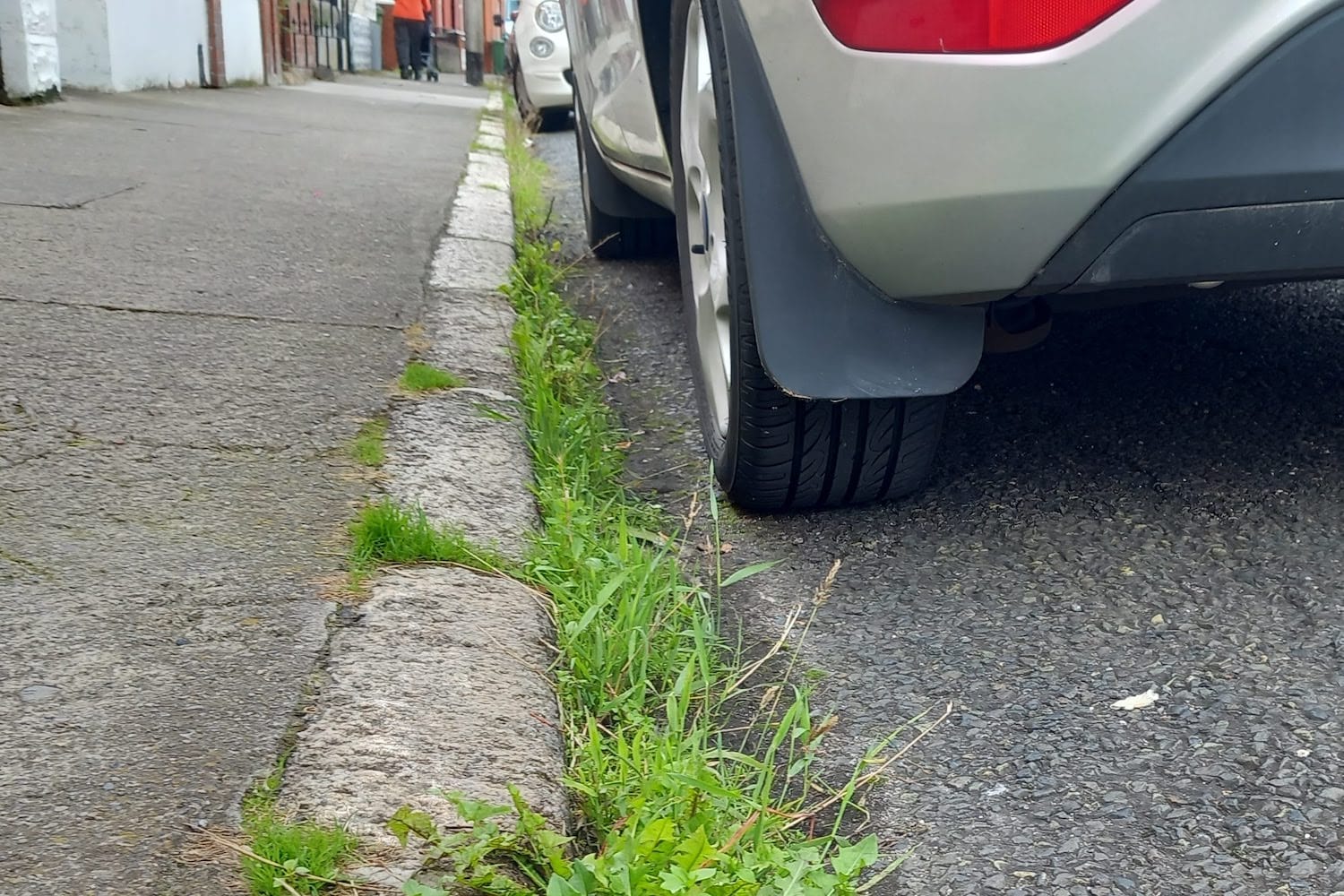What’s the best way to tell area residents about plans for a new asylum shelter nearby?
The government should tell communities directly about plans for new asylum shelters, some activists and politicians say.
These were some of the issues that councillors discussed at the latest meeting of their South Central Area Committee.

There was little support for a plan to open the doors of the Iveagh Markets on Francis Street, at a recent meeting of Dublin City Council’s South Central Area Committee.
Sinn Féin Councillor Máire Devine proposed the change as a motion at the meeting last Wednesday. The idea is that people would be able to see inside through the barred gates – which would still be left closed so no one could enter.
Council officials present at the meeting, as well as Green Party Councillor Michael Pidgeon, pushed back. Opening the doors could further damage the vacant, derelict, declining building, they said.
Devine said her motion at the meeting had been backed by the Friends of the Iveagh Markets. Noel Fleming, a founder-member of the local group, said on Monday by phone that they’ve arranged to have the doors opened a dozen or more times over the years.
They’ve brought schoolkids around to peer in and see what remains of the once-grand building and offer their ideas of what it could be. “It’s to keep the market on the agenda, certainly,” Fleming said.
Since the late 1990s, developer Martin Keane has not followed through on his grand plans to redevelop the beautiful old market building.
Efforts by the council and by Lord Iveagh – a member of the Guinness family, who originally owned the markets – to take back control of the building have left it tangled up in court. Meanwhile, the building is still empty and slowly crumbling.
The council issued a tender on 10 July to appoint a design team by September to work on stabilising the Iveagh Markets building to stop it from crumbling further, according to a council report.
The team is to be “a conservation architect-led integrated design team (who will carry out detailed condition surveys, oversee some initial clear out and propping, develop and issue tender documents and finally oversee the stabilisation works)”, the report says.
Derek Kelly, the council’s director of services for the South Central Area, said at the meeting that the doors should not be opened until a structural engineer does a survey and says it’s safe to do so.
Otherwise, it could open serious levels of liability if that building or a section of the building collapsed, he said. “We’ll all be in trouble.”
Bronagh Curry, a senior executive officer at the council, also warned against opening the doors during Wednesday’s meeting.
“There was, unfortunately, several interventions done by the occupant, which have damaged the walls and the door frames even, so we would have concerns about leaving it open,” she said.
By phone on Monday, Fleming called this “a load of bullshit”. “The doors are not supporting the building,” he said.
Pidgeon, the Green Party councillor, said at the meeting last Wednesday that keeping the doors open would let the weather in, potentially harming the building further.
“I think a lot of us share the spirit of motion which is that we want people in there and we want people to see what it is and we want this fixed soon,” he said.
But “what is our core priority around the markets?” Pidgeon asked. “For me it is saving the structure, and anything that carries a risk of that without the assessment of an engineer I am really, really wary of.”
On the phone Monday, Fleming wasn’t buying this either. “A load of shite,” he said. “There’s huge holes in the roof where the weather can get in anyway.”
The committee did not support Devine’s motion.
Councillors supported the idea of rezoning the site of a business off Cork Street in the Liberties, if necessary, to help the company keep operating.
At a meeting of Dublin City Council’s South Central Area Committee, Sinn Féin Councillor Máire Devine and independent Councillor Vincent Jackson proposed the motion to support Botany Weaving, on Emerald Square.
The company was founded in 1934, according to its website, and makes seat fabrics and carpets for airplanes. It has been “carrying out a manufacturing operation at this location and have done so for 88 years”, it says.
In the Dublin city development plans for both 2016–2022, and 2022–2028, the company’s land on Emerald Square is zoned Z1, or, a residential zoning. This became an issue with the announcement of the Residential Zoned Land Tax (RZLT) last year.
The annual tax of 3 percent of the market value of residentially zoned land that doesn’t have housing on it is meant to get landowners to build housing. It also means Botany Weaving is “going to be charged nearly up to €200,000 a year”, said Jackson.

Botany Weaving has objected to the application of the tax to its land. It has also appealed the issue to An Bord Pleanála. The company did not respond to queries about how the land got rezoned to residential.
If Botany Weaving’s appeal isn’t successful, “It is the intention of the local Councillors to look for a variation of the Dublin City Development Plan at the earliest opportunity.” If the land didn’t have a residential zoning, its owner – the company – wouldn’t be liable for the RZLT.
A land owner is “normally delighted” if their property is rezoned residential as it increases its value, Jackson said. But in this case, the owner is not delighted, as it threatens the viability of the company continuing to operate on that site.
It’d be a shame if Botany Weaving left the Liberties, Jackson said. “These are the kinds of businesses we need in the city.”
Independent Councillor Sophie Nicoullaud was one of the councillors supporting the motion.
“The plan of the city is to create a 15-minute city and that’s why we need to keep all the employment as close as possible to the residents,” she said.
At last Wednesday’s meeting of the council’s South Central Area Committee, independent Councillor Vincent Jackson continued his long-time crusade against weeds in Ballyfermot.
“It’s one of the biggest bugbears of my constituents,” he said on Friday on the phone. “We get lashed out of it by our constituents.”
“It almost feels as if by stealth the council is withdrawing from providing services,” Jackson said.
He proposed a motion that the council “please again look at our policy not to spray weeds within our communities at street verges, footpaths etc.”
“We are letting our communities down no end and whilst not wanting to spray with dangerous chemicals, we need a balance as we are losing our communities support,” it said.

Dublin City Council has reduced its use in the past years of herbicides containing glyphosates. In 2015, the WHO found glyphosates, commonly used in weedkillers like Monsanto’s Roundup at the time, is “probably carcinogenic to humans”.
“Dublin City Council’s policy with regards to herbicide use is to eliminate the use of herbicides by implementing alternative control methods, or where appropriate, allowing weeds to grow,” according to a 2018 council policy.
In response to Jackson’s motion, South Central Area Office public-domain officer Anna McDermott gave a report on the council’s anti-weed efforts.
At the meeting last Wednesday, McDermott said the council sprays weeds still, but this year with “combination of Foamstream and New-Way [Weed] Spray, which is essentially acetic acid or vinegar”.
“The weed-control programme for the city Council is 400 kilometers and there’s 45 kilometers assigned to the South Central Area,” she said.
“Now 45 kilometers is not a huge amount, even though the tender is double the amount that it was last year in monetary terms,” she said. “So I’ve tried to be as fair and equitable as possible.”
She says she’s targeted roads in Ballyfermot, Cherry Orchard, Bluebell, Drimnagh, Walkinstown, and the Liberties. Each spot targeted is supposed to be sprayed four times; one pass has been done already, McDermott said.
Jackson said by phone that he could understand the desire to reduce the use of glyphosates, “but we have to have an alternative that works”.
“I’m convinced the stuff they used last year was actually a fertilizer,” he said.
The council’s also using methods beyond spraying to try to keep the roads and footpaths looking tidy, McDermott said at last Wednesday’s meeting.
Street sweeping often isn’t that effective because in residential areas there are often cars parked along the kerbs so the machines can’t get in there.
“We do accept Councillor Vincent Jackson’s view of how dying weeds or weeds that have not been treated are growing and choking around the litter around the trees and kerbs and roadside verges,” she said.
“So we are looking at those particular areas as much as possible and trying, we will try to get some mechanism in place where we will have manual removal,” she said.
Get our latest headlines in one of them, and recommendations for things to do in Dublin in the other.